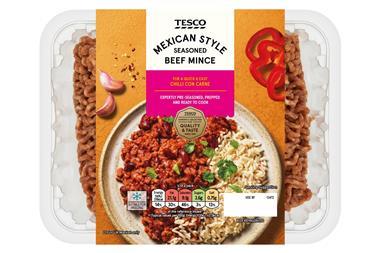How should the food industry communicate its message if it thinks new products offer a health gain? Scientists and marketers gathered last week in Finland at the request of VTT, the state funded technology organisation, to ponder just that question. In pouring rain but all night light, the Helsinki conference heard mixed messages. Some say the industry should shout about these new functional' foods. Others are wary.
Consumer and health groups are already complaining about health hype. Some copy has verged on the "eat this product and you'll live for ever" variety and court cases are booming all over Europe. This makes good business for lawyers, a leading German food lawyer said, but so far all they have managed to do is suggest that the gap between food and drugs is hard to define. The European Commission is churning out regulations, yet Danish research suggested consumers are happy with health claims as long as they are true. Hmm...
The fact remains that hundreds of products are coming to market, whether from food giants or minnows. Why do some sell and others bomb? Is it marketing or product? A European PR chief urged caution and careful media relations. Be wary of believing. Only evidence suffices and sceptical consumers will rumble lies.
One British expert (not me!) argued that companies must choose between life' and death' marketing. To claim that a product will prevent disease X or Y pitches the product in the fear category and limits the food to a permanent niche market. Top sales have undoubtedly been for those with bland but positive messages: eat me and have fun rather than eat this to stop you dying.
As ever with food revolutions, I am left wondering at the wizardry, but doubtful if most products will last, let alone have any health impact. Finland itself tackled heart disease not with magic products but simple messages such as cut down the fat. Producers were asked to reduce salt and fats. This strategy doesn't sell more food. But it worked.
{{NEWS }}
Close menu
- Home
- Retail & Wholesale
-
Products & Suppliers
- Back to parent navigation item
- Products & Suppliers
-
Product Categories:
- Back to parent navigation item
- Product Categories:
- Alcoholic drinks
- Bakery
- Cereals & breakfast
- Cheese
- Chicken & poultry
- Chocolate
- Confectionery
- Crisps, nuts & snacks
- Dairy
- Fish
- Fresh produce
- Frozen
- Household
- Meat
- Own Label
- Sauces & condiments
- Seasonal
- Soft drinks
- Vaping
- Vegan & plant-based
- World foods
- Suppliers
- People
- Reports & Data
-
Topics A-Z
- Back to parent navigation item
- Topics A-Z
-
Popular topics:
- Back to parent navigation item
- Popular topics:
- Cost of living crisis
- Crime
- Deposit Return Schemes
- Finance
- Government & Regulation
- Health
- Inflation
- Loyalty
- Marketing
- Mergers & Acquisitions
- New Product Development
- Sourcing
- Supply chain
- Sustainability & environment
- Technology
- Ultra Processed Foods
- Vaping
- A-Z all topics
- Content by type:
- Events
- Ask iA (beta)
- Subscribe now
Sign in to comment on this article
Not logged in before? Register for FREE guest access today.
You will be able to:
- Read more stories
- Receive daily newsletters
- Comment on stories
Advert


















No comments yet